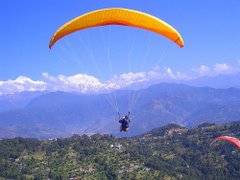
By Shoma Chaudhury
Who is a public intellectual? It is a measure of the receding presence of this idea in our collective lives, that having proposed a cover examining public intellectuals in India, we at Tehelka ourselves found it difficult to arrive at a consensus on what that term means today, and who qualifies.
Searching for names, we skittered off in different directions. Amartya Sen? Irfan Habib? MS Swaminathan? Arundhati Roy? VP Singh? Kanshi Ram? Arun Shourie?
Amartya Sen might be the architect of an urgently humane economic philosophy: the primacy of education and health for real development in the Third World. His scholarly rigour might bestow immense credibility to his views. But has he used his eminence as a Nobel winner to be more interventionist?
MS Swaminathan, father of the “green revolution” might have staved off famine in the 60s. He might now be busy creating what he calls “pro-poor technology.” But does that make him a public intellectual?
It was not enough to merely have an original idea, or cause, or excellent professional body of work, some of us argued. One had to engage with public issues beyond one’s domain and speak out. Use mass media. There was a danger of mistaking activism for intellect, others countered. Rhetoric for rigorous argument.
The past offered us simpler choices. Michael Madhusudan Dutt, Sri Aurobindo, Bhagat Singh, Gandhi, Nehru, Vinoba Bhave, JP, Lohia. Each of these were grand figures, espousing big ideas. They dissented, pushed the limits of perception. Modernity, freedom, democracy, socialism, caste identity. There could be no quarrel over them.
The concerns of our times are more fractured. Globalisation, communalism, poverty, affirmative action, corruption, nationalism. And perhaps the biggest demon of them all: individualistic self-fulfillment. In this supermarket of concerns, some preoccupations have seduced us as being more important than others. When we dropped Swaminathan from our considerations altogether, did we do so because he has not spoken out on issues like Gujarat or the rich-poor divide?
After pruning several long lists, we finally arrived at some consensual indices. A public intellectual is someone blessed with the tools of articulation, who uses that to influence public opinion. Someone who espouses a worldview and is willing to articulate and defend it. Someone willing to speak out. Engage. Open new ways of seeing. In doing this, they must display rigour, knowledge, accuracy, and ideological consistency. We have looked also for edginess, fearlessness, an appetite for battle if necessary. It is not easy to fulfill such demanding requirements, and many people chosen here fulfill only a few of the indices. The list of course is not definitive, or even a big enough sampling. Nor is it a beauty contest of intellectuals. There is no hierarchy of choice here, no awards, no ratings. Many names have fallen through the cracks for reasons as pedestrian as space. Or lack of consensus. Still, if the list provokes readers into argument or the impulse to send us better choices, it will have done its job.
Source: Tehelka

No comments:
Post a Comment